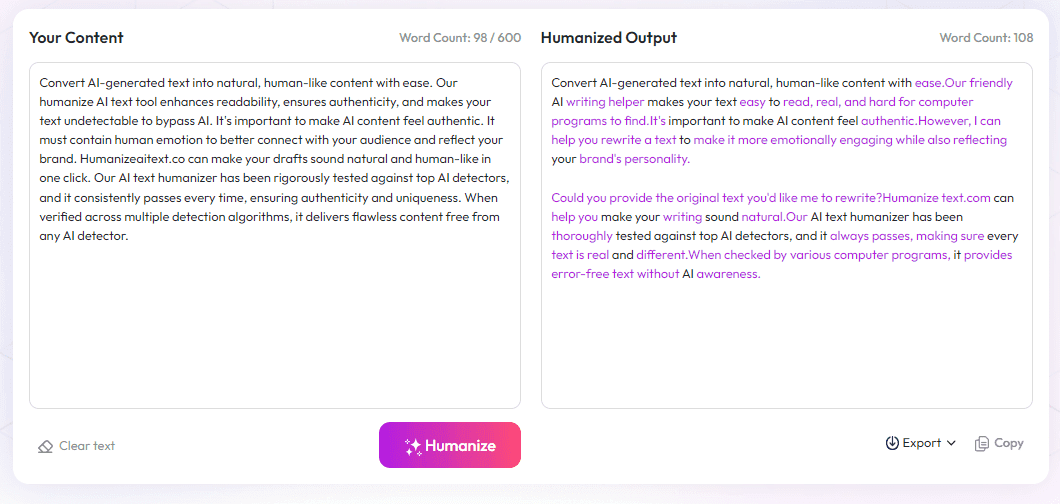Table of Contents
If you're into writing and wondering how to get more support or opportunities online, you're not alone. It can feel tricky to find the right programs that fit your goals and schedule. But don’t worry—by reading on, you’ll discover some great online creative writing fellowships that could be just what you need to boost your skills and bring your stories to life.
Stick with me, and I’ll show you what these fellowships are all about, why they’re worth your time, and the top options heading into 2025. Plus, I’ll share tips on how to find the perfect fit and nail your application, so you can start sharing your work with the world soon.
Key Takeaways
- Online creative writing fellowships let writers develop their skills remotely through mentorship, workshops, and project support, often with stipends or grants.
- Applying for these programs provides funding, mentorship, exposure, and networking, helping you grow as a writer and increase publication chances.
- Top options for 2025 include fellowships like Steinbeck, Wallace Stegner, Colgate O’Connor, and courses from FutureLearn, offering a mix of funding, community, and learning.
- Finding the right fellowship depends on your goals, genre, experience, and deadlines; research carefully and choose programs matching your needs.
- Prepare strong applications by starting early, selecting your best work, writing a clear personal statement, and gathering recommendations and materials on time.
- Use available resources like writing prompts, guides, and online communities to improve your craft and strengthen your submissions.
- Begin your application now by setting weekly goals, seeking feedback, and customizing each one to increase your chances of acceptance.

1. What Are Online Creative Writing Fellowships?
Online creative writing fellowships are programs that offer writers the chance to develop their craft remotely, often through virtual mentorship, workshops, and project support. These fellowships provide financial aid, guidance, and networking opportunities without the need to be physically present on campus.
They cater to a diverse range of writers, from emerging voices to established authors, aiming to nurture talent from anywhere in the world. Many of these programs also highlight specific genres like fiction, poetry, or creative nonfiction.
The key benefit? Writers can focus on their projects while receiving expert feedback, connecting with a community of peers, and sometimes earning stipends or grants to support their work.
Fellowships such as the ProFellow listing often include options suitable for remote applicants seeking to boost their writing careers.
Some programs may also provide additional perks like mentorship, submission opportunities, and access to exclusive literary resources—all from the comfort of your own workspace.
2. Why Apply for Online Creative Writing Fellowships?
Applying for these fellowships is a smart move for any writer looking to grow. Not only do they offer financial support, but they also open doors to mentorship, critique, and professional connections that can be hard to find on your own.
With fierce competition—think fewer than 2% of applicants receiving major national awards like the NEA Creative Writing Fellowships—crafting a compelling application can make a real difference in your career trajectory.
Many programs, including PEN America’s Emerging Voices Fellowship, also prioritize underrepresented voices, offering a platform for diverse stories that better reflect the world today.
Besides funding, fellowships boost your visibility, help you sharpen your skills through targeted feedback, and often lead to publishing opportunities or inclusion in anthologies.
Applying might seem daunting, but the process encourages reflection on your craft and goals. It’s an investment in your writing future—plus, some fellowships provide networking opportunities that could lead to residencies or publishing deals.
So, if you’re serious about taking that next step, exploring options like the Winter Writing Prompts or the Guide to Publishing Without an Agent can help you prepare compelling submissions.
3. Top Online Creative Writing Fellowships to Know in 2025
3.1 Sesame Street Writers’ Room
The Sesame Street Writers’ Room offers a unique opportunity for writers interested in children’s television. Though primarily based in-house, they have online collaborations and workshops that help emerging writers break into TV scriptwriting, especially in the kids’ entertainment space.
3.2 Steinbeck Fellowship (SJSU)
Sponsored by San José State University, the Steinbeck Fellowship offers $15,000 annually to writers working on a manuscript or research project. It’s designed for those who want dedicated time to refine their work, with applications typically due in early January.
3.3 Wallace Stegner Fellowship
Operated by Stanford University, this highly competitive fellowship provides two years of financial support, teaching opportunities, and community engagement. It targets promising poets and fiction writers who want a deep dive into their craft while contributing to Stanford’s vibrant literary environment.
3.4 Colgate University O’Connor Fellowship
This fellowship offers writers the chance to spend a semester at Colgate University focusing on their projects, often with opportunities to engage with students and faculty. It’s perfect for those wanting a blend of solitude and community.
3.5 FutureLearn Creative Writing Courses
While technically courses rather than fellowships, FutureLearn provides online courses led by established instructors. These are perfect for writers seeking flexible learning opportunities, often culminating in a certificate that can boost your writer’s resume.
These programs present excellent options, especially when considering virtual access, broadening the reach of professional development in the world of creative writing.
For detailed info and application tips, the Winter Writing Prompts can inspire your work, while guides like how to get a book published without an agent can help you maximize your chances once you’re accepted into these programs.

4. How to Find the Right Fellowship for You
Finding the right online creative writing fellowship is about matching your goals, genre, and experience level with what each program offers.
Start by making a list of what you want to achieve—whether it's funding, mentorship, publication chances, or community engagement—and look for programs that align with these priorities.
Check the eligibility requirements carefully—some fellowships target emerging writers, while others favor more established authors.
Research deadlines and application components early so you have ample time to gather materials like writing samples, references, and personal statements.
Look into past recipients or committees’ preferences to tweak your application accordingly.
Websites like ProFellow list numerous options, making it easier to compare and find programs suited to your needs.
Don’t forget to consider whether the fellowship offers benefits that match your current goals, like residencies, stipends, or publishing support.
Joining writing communities online or attending virtual info sessions can give you inside tips and help clarify which programs feel like a good fit.
Lastly, ask yourself if the program’s focus aligns—whether it’s genre-specific, style-driven, or aimed at diverse voices—so you can tailor your application to stand out.
5. Tips for a Successful Application
Getting noticed among hundreds of applicants isn’t easy, but smart preparation makes a difference.
Start early—give yourself enough time to craft a polished, error-free submission that truly reflects your voice.
Follow the instructions carefully—submitting the correct materials in the right format can be the difference between being considered or not.
Choose your best writing sample; it should showcase your voice and mastery of craft—whether it’s a short story, poem, or nonfiction piece.
Write a compelling personal statement that explains why you want the fellowship and how it will help you grow as a writer.
Get feedback from a trusted peer or mentor—an extra set of eyes can catch mistakes and suggest improvements.
If references are needed, select people who genuinely know your work and can speak to your potential and dedication.
Highlight any past accomplishments, publications, or relevant experiences that bolster your application.
Lastly, keep a checklist so you don’t forget to include every required element and deadline for submitting.
Remember: even if you don’t get accepted on your first try, each application is a chance to refine your craft and understand what panels are looking for.
6. Extra Resources for Online Creative Writing Fellowships
There are tons of tools and guides out there that can help you prepare stronger applications and improve your writing overall.
The Winter Writing Prompts can give you fresh material to revise or showcase in your submissions.
The article on getting published without an agent offers tips on navigating the publishing world once you're accepted into a fellowship.
Websites like ProFellow provide comprehensive lists of fellowships and application advice.
You might also find useful guides on craft improvement, like how to write a dystopian story, or book marketing resources to prepare for post-fellowship opportunities.
Podcasts, webinars, and online communities are goldmines for insider tips and peer support.
Keep an eye on deadlines and set reminders—many fellowships open applications months in advance.
Finally, don’t think of these resources as one-and-done; use them throughout your writing journey to stay motivated and improve your craft.
7. Take Action: Start Your Application Now
The best time to start is now—waiting until the last minute can only increase stress and decrease your chances.
Pick one or two programs that fit your goals, and begin by drafting your personal statement and gathering your writing samples.
Set weekly goals to complete parts of your application—this keeps you on track and avoids last-minute rushes.
Seek feedback early—don’t be shy about asking friends or mentors to review your materials.
Remember to tailor each application—highlight why that specific fellowship is right for you.
Double-check every requirement and deadline — missing a detail could mean rejection.
Once submitted, keep a copy of your application and be ready to follow-up or provide additional information if asked.
Even if you don’t get accepted right away, every attempt is a step closer to your writing goals.
So, get inspired, stay organized, and start that application today—your future fellow writer awaits!
FAQs
Online creative writing fellowships are programs offered digitally to support writers. They provide mentorship, workshops, and funding opportunities for writers to develop their skills and work on projects remotely.
Applying for these fellowships can provide financial support, networking opportunities, and guidance to help improve your writing. They also add credibility and experience to your writing career.
Consider your writing genre, goals, fellowship requirements, and application deadlines. Research different programs to find ones that align with your interests and offer the support you need to develop your craft.
Focus on a clear, compelling sample of your writing, follow each application guideline carefully, and highlight your goals and achievements. Strong recommendations and a well-crafted personal statement can also boost your chances.



